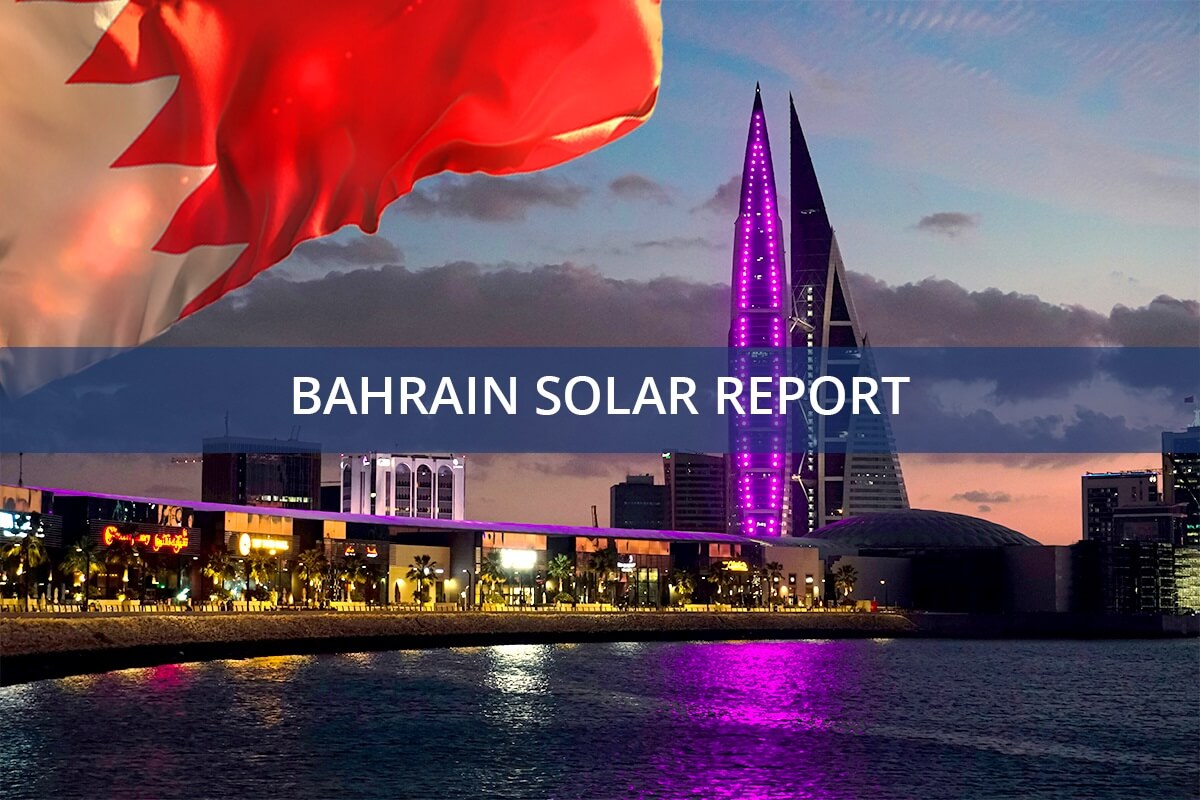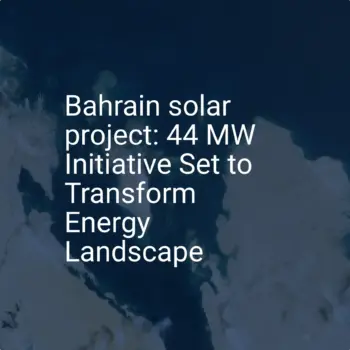A Turnkey Solution for Bahrain’s Booming Solar Market: A 2025 Feasibility Study
The Kingdom of Bahrain has set ambitious goals for its energy future, positioning itself as a strategic hub for renewable technology in the Gulf region. This shift creates a prime opportunity for entrepreneurs and investors to establish local manufacturing capabilities and meet rising demand.
This article explores the feasibility of establishing a turnkey solar module production line in Bahrain, analyzing market drivers, regulatory frameworks, and the practical steps required to tailor a manufacturing solution for this specific market.
Bahrain’s Solar Landscape: A Market on the Rise
Under its Vision 2030, Bahrain is actively diversifying its economy and energy sources. The National Renewable Energy Action Plan (NREAP) is the cornerstone of this strategy, targeting 5% of total electricity generation from renewables by 2025 and 20% by 2035. Solar photovoltaics (PV) are central to this effort.
Bahrain’s installed solar capacity is growing steadily, driven by both large-scale projects and distributed generation on commercial and residential rooftops. With electricity demand rising and the levelized cost of solar energy (LCOE) becoming increasingly competitive—projected to be as low as $0.036/kWh—the economic case for local solar production is compelling.
Ready to power your world?
Transform your solar ambition into reality with our support. Whether you need practical help from our comprehensive services or advanced insights from our Premium Course, we’re here to guide you every step of the way.
Market Drivers: Why Invest in Bahrain’s Solar Sector?
Bahrain’s appeal for solar module manufacturing stems from several key factors. Understanding these drivers is essential to building a sound business case.
- Strong Government Support: The Bahraini government actively encourages investment in renewables through clear policies, tenders for new projects, and support for private sector participation.
- Favorable Regulatory Framework: Policies like net metering allow consumers to sell excess solar power back to the grid, stimulating demand for rooftop installations.
- Economic Viability: The falling cost of solar technology, combined with local electricity tariffs, makes solar an economically attractive alternative for commercial and industrial consumers.
- Strategic Location: Bahrain’s location offers logistical advantages for importing raw materials and potentially exporting finished modules to the wider GCC region.
Navigating the Regulatory Environment: A Guide for Investors
A successful venture hinges on a clear understanding of local rules and incentives. To this end, Bahrain offers a supportive environment for renewable energy businesses.
The NREAP lays out a clear roadmap with national targets and planned capacity additions. Financial support mechanisms are also available to investors. For instance, Tamkeen, Bahrain’s labor fund, offers financing schemes to help businesses adopt solar energy, which in turn fuels demand for locally made panels.
An experienced partner can be invaluable for navigating critical steps like import duties, local certification requirements, and business registration.
The Competitive Landscape: An Opportunity for New Entrants
While Bahrain has existing solar panel installers and developers, its local manufacturing capacity is still developing. Companies like Solar One have established a presence, proving the viability of producing modules in the Kingdom.
However, the market is far from saturated. The government’s ambitious targets suggest that demand will soon outpace the current local supply. This creates a clear opportunity for new entrants with efficient, high-quality production lines to capture significant market share, particularly for projects requiring locally certified and customized modules.
Your Turnkey Solar Production Line in Bahrain: A Feasibility Analysis
Establishing a factory from scratch is a complex undertaking. A turnkey solution from an experienced engineering partner simplifies the process by providing all necessary equipment, process design, and technical know-how. Adapting that solution for success in Bahrain requires a tailored approach.
Customizing Your Solution for the Local Market
Bahrain’s climate presents specific challenges. High ambient temperatures, humidity, and dust accumulation can impact the performance and longevity of solar modules, making a standard production line insufficient.
A tailored turnkey solution accounts for these factors. This includes selecting an appropriate bill of materials (BOM) and designing modules with enhanced durability, high-temperature performance, and coatings that resist soiling. Production processes can be optimized to meet or exceed local and international quality standards, ensuring your products are trusted by customers and eligible for government-backed projects.
Cost-Benefit Analysis
The initial investment in a turnkey production line covers machinery, installation, technology transfer, and training. Operational costs include rent for industrial space, utilities, labor, and raw materials.
While a detailed financial model is specific to each project’s scale, the potential return on investment is compelling. By manufacturing locally, you can reduce shipping costs, shorten lead times, and offer customized products. The strong and growing demand, supported by government policy, creates a clear path to profitability.
Overcoming Challenges
The primary challenge in Bahrain is land scarcity for large-scale production facilities and solar farms. However, this scarcity itself creates an opportunity.
- The market for rooftop solar on industrial, commercial, and residential buildings is substantial.
- Your production line can be scaled and configured to produce the specific module sizes and types best suited for distributed generation Turning a limitation into a market advantage.
Conclusion: Your Partner for Success in the Bahraini Solar Market
Bahrain offers fertile ground for entrepreneurs ready to invest in solar module manufacturing. The combination of strong government commitment, a supportive regulatory framework, and growing demand creates a sustainable business opportunity.






